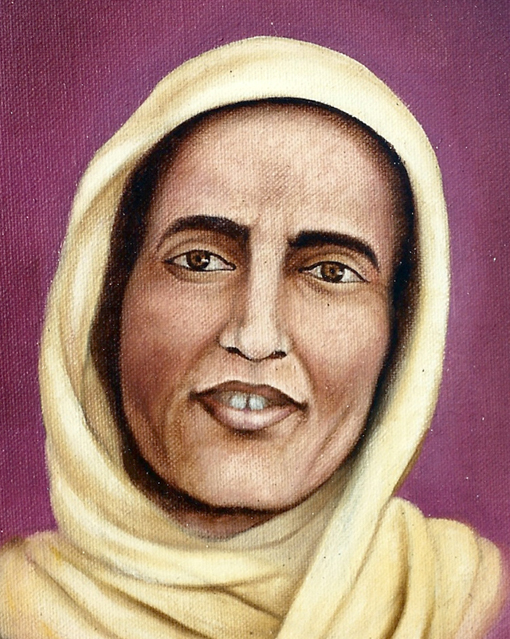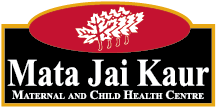Our Mission
We’re a non-governmental organization dedicated to improving the health of mothers and children through the provision of high quality reproductive and child health services in a safe, hygienic, and women-centred environment.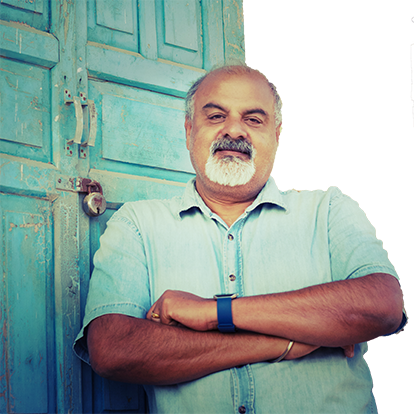
Our founder, his vision…
Born in 1956, on the very same site as our clinic, Deep Shergill experienced firsthand the perils of inadequate healthcare for women. Due to complications during her pregnancy, Deep’s mother passed away shortly after giving birth to him. His grandmother, Mata Jai Kaur, who was 85 at the time, took him in and raised him from an infant to a young man, instilling in him values he carries with him today. As a tribute to the sacrifices his mother and grandmother made, Deep established the Mata Jai Kaur Centre in 2009 and remains actively involved.
“I envision a society where women are empowered as agents of change and children are free to achieve their highest potential. Such a society is free from unnecessary and preventable deaths of women and children due to a lack of quality reproductive and health services.”
OUR VALUES
The 5 pillars of MJK.
Our approach is based on 5 core values, our pillars. These pillars are symbolic of those found in a Haveli, a traditional Rajasthani house, in which the roof is held up by a series of pillars that sit atop a safe and sound foundation. Each pillar symbolizes a different core value, and the foundation represents the ‘prevention of unnecessary deaths’.
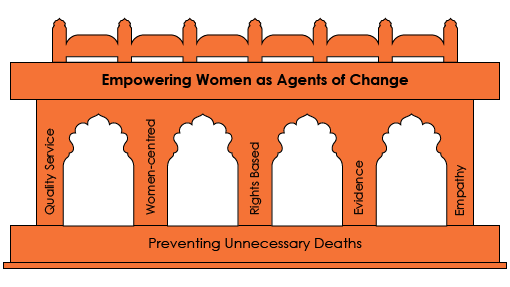
Their story, our humble beginnings…
Mata Jai Kaur and Mata Karta Kaur are the inspiration behind our existence. Their experience epitomizes the struggle that many women in Ganganagar still endure.
Mata Kartar Kaur, after whom our prenatal clinic is named, gave birth to nine of her ten children in a small, mud-walled hut on the very spot that our clinic now stands. Due to unhygienic conditions and unsafe delivery techniques she contracted puerperal fever, still one of the biggest killers of women in developing countries, and died soon after giving birth to her last child, Deep Shergill.
Although Kartar Kaur died young, her influence on her children’s future was tremendous. At a time when literacy and education were not highly valued, especially for girls, Kartar Kaur ensured that all of her children, including her husband, could read and write. The value for education she instilled in her family paved the way for brighter futures in Canada and United States. Kartar Kaur died at the age of 35 in 1956 from a preventable condition. Indeed, many of the risks that Kartar Kaur faced while giving birth to her ten children continue to threaten the wellbeing of mothers in Sri Ganganagar and across the developing world.
Our work is a reflection of Kartar Kaur’s love and sacrifice and is dedicated to the health and wellbeing of the women of Ganganagar. After Kartar Kaur’s death the responsibility for caring for her newborn child passed to her mother-in-law – Deep’s grandmother – Mata Jai Kaur. Jai Kaur was 85 years-old at the time and dutifully continued working in the cotton and wheat fields, preparing food, and managing other household chores while caring for her infant grandchild. In many ways, Mata Jai Kaur’s life reflects the struggles that women continue to face in many parts of India and the developing world. She was forced to marry young, denied opportunities for education and lived a life of servitude. Her responsibilities as a young women included hauling drinking water over long distances through Rajasthan’s scorching summers and freezing winters.
Like Kartar Kaur, Jai Kaur faced the many health risks associated with early pregnancy in an environment that lacked reproductive healthcare services. Many poor families in Sri Ganganagar still marry their children young, which increases the likelihood of early pregnancy and its associated health risks. Fortunately, Jai Kaur survived to live a long time. She passed away in 1976 at the age of 105 and in the process had a direct and profound influence on three generations of her family. For her children, grandchildren, and the great-grandchildren Jai Kaur remains an everlasting source of inspiration and love that makes the Mata Jai Kaur Maternal and Child Health Centre possible. In development discourse it is well established that women can play a central role in lifting their families out of poverty.
Together, Mata Kartar Kaur and Mata Jai Kaur embodied this notion of women as agents of change. They planted a seed that bloomed around the world and that has come back to Ganganagar through MJK.
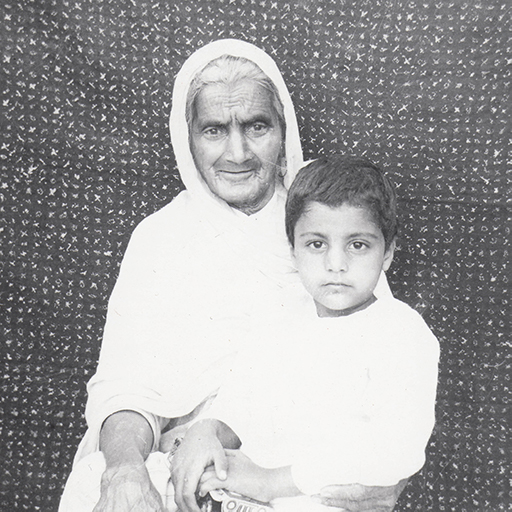
Mata Jai Kaur with her grandson, Deep
